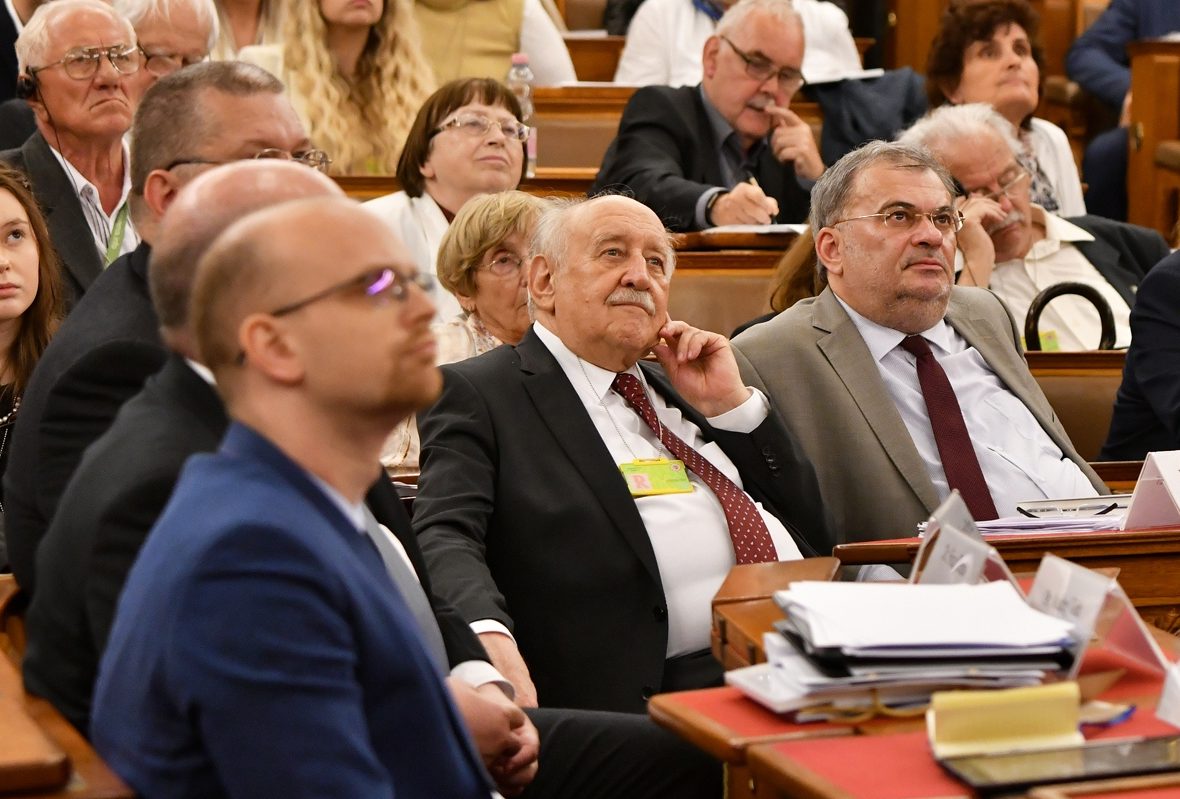
At the end of the morning session of the Helmut Kohl Conference in Budapest on May 24, Prof. Dr. Hans Kaiser, former Minister for European Affairs and German Minister for Regional Affairs, respectively from the summer of 2006 until his retirement in the summer of 2012, the Konrad Adenauer Foundation’s representative in the Hungary Office, gave a short interview for Hungary Today. Our topic concerned the development of German-Hungarian relations in recent decades.
Professor, there was a train of thought in your lecture, when you said that German-Hungarian relations, which were deepened by Helmut Kohl and József Antall, have deteriorated somewhat over the years and that now there is a certain distance between our countries. When do you think the deterioration of bilateral relations can be dated?
The rupture was in 2010, when Orbán became prime minister for the second time and it was realized that the script that Brussels had developed was not going to be accepted by Orbán – and many others as well. I know Brussels quite well and know exactly how the mechanisms work there. That the pre-votes of the directorates and the commissioners are stronger than one could have imagined until then.

Prof. Dr. Hans Kaiser (bottom). Photo: Retörki
Why did they want to oust Orbán at all costs?
Because Orbán has worked out a counter-program that does not coincide with the objectives of Brussels. This program contradicts the ideas of the Greens, the Social Democrats and the left liberals, which Brussels did not tolerate. The other political forces – including the EPP – are totally subordinate to these components. In my time of political decision-making, I never let myself be guided by them, I always went my own political way. I always did what I thought was right myself, but of course I also took into account what was said by my political opponents. Because they can also be right! You say that rather polemically, but of course they can also be right! And that is precisely why it is important that we Christian Democrats and conservatives do not allow ourselves to be led around by the nose like a bear in the ring by the left-wing liberals and socialists.
Germany – regardless of the fact that Chancellor Kohl and Prime Minister Antall had a deep friendship – would have preferred to see a left-liberal coalition in Hungary. Is not that somehow a contradiction?
No. The Germans were satisfied with goulash communism and the image of János Kádár in Hungary. Kádár’s regime was accepted by the West over time and he was able to build an image that was totally sympathetic to the West.
Yes, the system was still being consolidated in the 1960s, even in Hungarian society.
People had a totally different experience with his person than what they had known about communism in the West.
From the outside, people saw it quite differently.
Yes, quite different. He did some clever image-building and it worked. If you look around the House of Terror museum, for example, you can see that the propaganda around his person has built up the image of a nice, sympathetic, empathetic and respectful person. A man with a cigarette in his hand, among the people. That played a very important role in how the West judged Hungary, and the Hungarian left liberals. The people, of course, who left Hungary in 1956 during or after the revolution and fled to Germany could not share this opinion. But within Hungarian society and also in public opinion in the West, this deliberately constructed façade was accepted.
Miklós Németh and Gyula Horn were regarded as sympathetic even after the pan-European picnic and they even let East Germans through the border in September 1989. They were also recognized names in Germany, therefore, the Germans actually had nothing against the Hungarian socialists.
As Prof. Dr. Endre Marinovich put it in his speech: Kohl actually wanted Gyula Horn as Foreign Minister of Hungary, but Antall did not want to accept having an ex-communist in his government.

Photo: Retörki
What possibilities and perspectives do we have to bring our countries closer together again? Could that work with Viktor Orbán or can he no longer be accepted by Germany at all?
Many things are possible with Orbán, of course! But he himself is in confrontation with Germany and he is also hurt. It is not just about what the Germans accept, but what is accepted by Orbán. As I observe him, he also has hurts, even if he probably would not admit it. And I have full understanding for that! He got into this impossible situation after Gyurcsány and Bajnai had led the country into enormous debts, and then consequently Orbán was insulted endlessly by political opponents in Brussels. He stands up in front of the other prime ministers, and he is attacked without end, in an unbearable way. I have sometimes been ashamed of myself, and I once said to a Dutch colleague, for example, “Please, colleague, please moderate yourself… we are in a parliament here, and it is not acceptable to attack another politician in such a way and to speak to a colleague in such a way!
That means that our task now is to communicate properly and to find a way to a constructive and effective method of negotiation, despite everything that has happened so far. And where you disagree with Orbán, you must negotiate.
I have known him for a long time, by the way. Since the reburial of Imre Nagy, when he gave his famous speech in Heroes’ Square. He is a very intelligent and talented person. So you have to talk to each other, even talk decently, as is common and acceptable among conservatives in general. And, of course, you must maintain diplomatic relations.
At the moment that does not seem to be working, or does it?
No, at the moment, unfortunately, it does not work at all. There is no differentiated communication, no communication that reaches out to the other person. And that is what one must deplore, especially when it comes to Hungary. A country that lies at the heart of Europe and has its own culture and a stable set of values. In Europe there are different countries, with different value systems and different political cultures. And that must be accepted in the EU. The EU is a community that clearly speaks out for its diversity and for promoting and preserving this diversity.
Featured Photo: Retörki